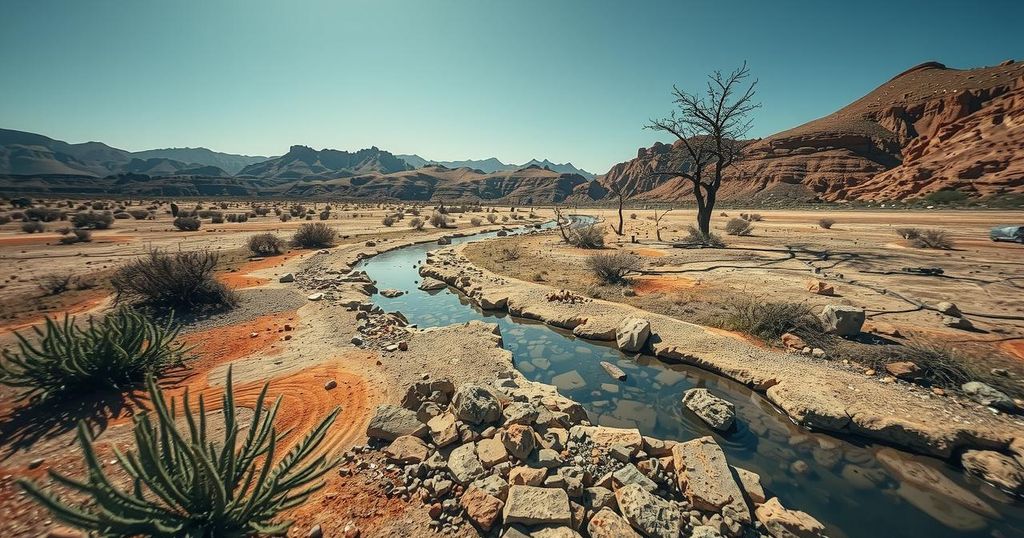Water Crisis in South Africa: A Struggle for Access Amidst Shortages

In Johannesburg’s Tembisa township, residents are struggling with severe water shortages, facing intermittent supply cuts for several days. The crisis stems from municipal restrictions to manage consumption and routine maintenance. While Rand Water warns of high consumption rates and infrastructure issues, the situation is worsened by anticipated climate change impacts, which threaten future water availability. Protests have erupted as communities demand reliable access to water, raising concerns over health safety.
In South Africa, particularly in Johannesburg’s township of Tembisa, residents are experiencing severe water shortages exacerbated by increasing temperatures as the summer season approaches. For instance, Joyce Lakela, a local nursery operator, has found herself devoting significant time to sourcing water, struggling as water supplies have been disrupted for five consecutive days. This situation highlights the growing challenge of water accessibility amidst municipal restrictions aimed at managing what has been deemed excessive consumption, while also allowing for necessary infrastructure maintenance. Despite adequate water reserves at a national level, individuals like Ms. Lakela face daily difficulties due to intermittent supply cuts. Tensions have escalated in local communities, evidenced by recent protests from residents of Westbury and Westdene against water outages, leading to road blockages and burning of tires. The crisis is compounded by Rand Water’s recent warnings regarding high water consumption throughout Gauteng, urging municipalities to implement daily usage limits to avert potential disasters. The utility reports severe water loss due to leaks and unauthorized connections, with around 40 percent of water being lost in Gauteng. Experts criticize insufficient infrastructure replacement initiatives and highlight inefficiencies in municipal management. The situation remains precarious as plans to bolster the region’s water supply, involving a long-awaited agreement with Lesotho initiated back in 2009, are delayed until 2028. With an already fragile water ecosystem, climate change poses additional concerns, with projections suggesting potential decreases in annual precipitation by up to 25 percent by the century’s end. Municipalities have been urged to impose stricter regulations and consider the financial ramifications of continued mismanagement. Lastly, the health risks that arise from inconsistent water supply systems, wherein empty pipes can become contaminated, further underline the urgency for reforms in water management.
South Africa is currently grappling with a persistent water crisis, marked by widespread shortages and increasing pressure on existing water supplies. Johannesburg, being the largest city in the country, is witnessing significant disruptions as residents face daily water cuts attributed to government-imposed restrictions and maintenance work. While the country possesses sufficient water resources, systemic failures in infrastructure, governance, and management have exacerbated this situation, leaving residents vulnerable to water scarcity. Climate change intensifies these challenges as changing weather patterns threaten future water availability, thus necessitating urgent action from both local authorities and citizens.
The ongoing water shortages in South Africa illustrate a complex interplay of infrastructure strain, mismanagement, and climate change, leading to rising tensions among the population. Without significant reforms and a commitment to sustainable management practices, the situation is likely to worsen, affecting both households and vital services such as healthcare. Authorities must take immediate and decisive steps to address both the supply and governance issues to ensure the long-term viability of water resources in the region.
Original Source: www.seychellesnewsagency.com






